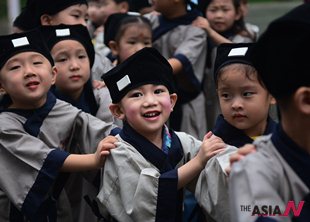Listening to the Quiet Voices of the Disabled
On June 3, 2025, Lee Jae-myung of the Democratic Party of Korea was elected as the 21st President of South Korea. The AsiaN is publishing the hopes and expectations of Koreans for the new president and administration in both Korean and English editions. We welcome the interest, feedback, and constructive criticism of our readers.
The AsiaN Editorial Team

By Kim Young-gwan,
Poet living with a brain lesion and author of Running Slow
SEOUL: First of all, I sincerely congratulate you on your election as the 21st President of the Republic of Korea.
In these difficult and confusing times, the Korean people are struggling just to get through each day. I hope that, through thoughtful policies and concrete action, your administration will bring smiles to the faces of our citizens. I ask that you stay one step ahead of us, think one step more carefully than we do, and guide the nation toward a better future.
Although I am still someone with much to learn, I would like to share a few hopes I have as a citizen—and as a person living with a disability.
First, I hope our country can introduce an educational curriculum, starting from elementary school, that fosters understanding of people with disabilities in a more accurate, respectful, and practical way. If students learn from a young age how to interact safely and inclusively with persons with disabilities, society will become more informed, accepting, and integrated.
Second, I hope that employment opportunities for people with disabilities can be further diversified. Since every individual’s disability is different, jobs should be more finely tailored to reflect those differences. I dream of a society where people with disabilities can earn a stable income that allows them to enjoy both welfare and leisure—without constant worry over money or job security.
Third, I hope that more accessible fitness facilities will be established so that persons with disabilities—especially those with limited mobility—can enjoy the benefits of physical activity without having to travel long distances. These facilities do not need to be large or filled with expensive machines; even modest spaces where people can gather, move, and find joy together would make a huge difference.
Fourth, I hope that a wider range of educational programs will open new doors for persons with disabilities—so they can explore more career paths and enjoy meaningful leisure in ways that best suit their individual needs. With the right education and support, each person can work where they thrive and live a fuller, richer life.
Fifth, I hope there will be expanded training and improved benefits for personal care assistants. This would help foster environments where people with disabilities and their assistants can live and work together with dignity and joy. If the job of personal assistant is better understood and supported, the availability of these essential workers will increase, thereby enabling people with disabilities to participate more fully in society. Such support could shift public perception, promote broader social inclusion, and even generate positive economic effects.
With improved productivity and expanded job diversity, we can expect higher quality of life not only for persons with disabilities but for society as a whole.
Lastly, I would like to clarify that this letter does not claim to represent the voices of all persons with disabilities. It is simply a personal perspective. I ask, however, that your administration take more interest in the real conditions people face, and listen attentively to the many stories and issues that still go unheard.




